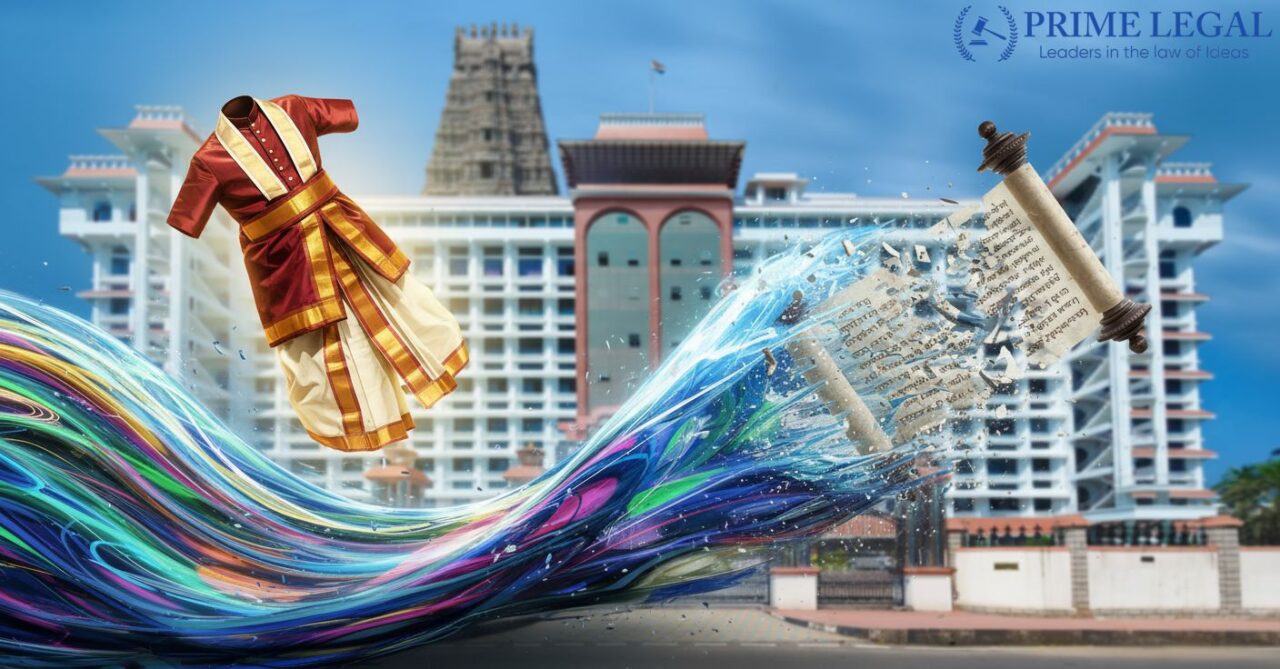Introduction
The Kerala High court has recently passed an eye opening judgement regarding appointment of temple priests. It held that appointment of these priests cannot be based on their background only from members of any particular caste or lineage. It held this view owing to the fact that it does not constitute an essential religious practice under the Constitution of India. A Division Bench of Justice Raja Vijayaraghavan V and Justice KV Jayakumar delivered the judgment while upholding the decision of the Travancore Devaswom Board (TDB) and the Kerala Devaswom Recruitment Board (KDRB). This decision was in relation to the recognition of experience certificates issued by the Thantra vidyalayas for the recruitment of part time priests.
Background
This ruling came because The petition was filed by a society called as akhila kerala thantri Samajam as they contested the recruitment process of temple priests through thrantra vidyalas. The society comprises about 300 traditional thantri families in Kerala and its president Easanan namboodiripad.
Key Points
Appointment of Santhis: The court held that appointment of Santhis (temple priests) is a secular function that can be regulated by statutory authorities like the TDB and KDRB. It held this after relying on the precedent in Seshammal v. State of Tamil Nadu (1972). It said that appointment of temple priests is a secular function even though thier actual duties are sacred.
Article 26 and article 25 : the petitioner argued that the appointment of priests should be made according to the various essential religious practices protected under article 25 and 26 but the court rejected this contention stating that there is lack of any legal foundation to back this contention and held that merely relying on ancient texts or traditions cannot convert a caste – based privilege into a constitutionally protected religious practice.
Validity of Rule 6(1)(b): The court upheld the validity of Rule 6(1)(b) and it dismissed this petition. It emphasised with great clarity that temple administration and priest appointments are subjected to the constitution of India. Our law does not violate religious freedom when it simply seeks equality and dignity in temple service.
Recent developments
The day after the landmark judgment, the same Division Bench directed the Travancore Devaswom Board to file an affidavit clarifying details regarding appointment and accountability of assistants to head priests at Sabarimala
Conclusion
The October 22, 2025 Kerala High Court judgment in this case, Akhila Kerala Thanthri Samajam case, shows a watershed moment in the intersection of constitutional law, religious freedom, and social equality in India. The decision firmly establishes that caste and lineage-based restrictions in temple priesthood appointments are not essential religious practices protected under Articles 25 and 26 of the Constitution.
“PRIME LEGAL is a full-service law firm that has won a National Award and has more than 20 years of experience in an array of sectors and practice areas. Prime legal falls into the category of best law firm, best lawyer, best family lawyer, best divorce lawyer, best divorce law firm, best criminal lawyer, best criminal law firm, best consumer lawyer, best civil lawyer.”
WRITTEN BY S. KAVIYA SRI


